Our Alumni Network
Neurasmus alumni continue to influence the field of neuroscience through their contributions in research, industry, and public health.
Success Stories
Maria, John, Aisha or Sarah—all have made significant contributions to the field of neuroscience, building on the strong foundation provided by the Neurasmus program. Each of their journeys reflects the power of interdisciplinary education and international collaboration in driving innovation and discovery.
Their stories inspire current and future students to pursue excellence and leave their own mark on the world of neuroscience.
Explore alumni success stories (lien vers page blog ) to learn more about their impactful work and how Neurasmus shaped their careers.
NEURASA & EMA
The Neurasmus Students and Alumni Association (NEURASA) and the Erasmus Mundus Students and Alumni Association (EMA) are key platforms connecting current students and alumni, fostering a vibrant and supportive community across the globe.
NEURASA serves as an international network for Neurasmus participants, offering opportunities for mentorship, collaboration, and professional development. It’s a space where students and alumni can share experiences, exchange ideas, and build lifelong connections.
EMA extends this network further by bringing together students and alumni from all Erasmus Mundus programs. As a global platform, EMA provides access to events, resources, and a broader community of like-minded professionals dedicated to advancing education and innovation.
Get involved today and become part of these thriving networks:
Success stories
Kjara Pilch – Class of 2016 publications
Increased surface P2X4 receptor regulates anxiety and memory in P2X4 internalization-defective knock-in mice. Bertin E*, Deluc T*, Pilch KS*, Audrey Martinez A, Pougnet JT, Doudnikoff E, Allain AE, Bergmann P, Russeau M, Toulmé E, Bezard E, Koch-Nolte F, Séguéla P, Lévi S, Bontempi B, Georges F, Bertrand S, Nicole O and Boué-Grabot E. (*co-first authors). Molecular Psychiatry. DOI : 1038/s41380-019-0641-8.
Increased cell surface levels of the ATP receptor P2X4 are observed in several brain and peripheral disorders, suggesting an involvement of P2X4 in the pathogenesis of pathologies such as Alzheimer’s disease and Amyotrophic lateral sclerosis. In this study, published in the journal Molecular Psychiatry, we present a novel knockin mouse model providing a tool to specifically increase P2X4 levels on surfaces of different cell types and thereby mimicking the previously observed pathological upregulation. Our results show that increased P2X4 levels on the surface of excitatory forebrain neurons of knockin mice alter activity-dependant synaptic plasticity phenomena, impair learning and memory and reduce anxiety-like behaviour. These findings emphasize the key role of increased P2X4 on neuronal surfaces in various neuropsychiatric disorders. Moreover, we characterize and validate this knockin mouse model as a unique tool that will allow to further decipher the cell-specific roles of P2X4 in various physiological and pathological contexts.
https://www.nature.com/articles/s41380-019-0641-8
https://www.frontiersin.org/articles/10.3389/fneur.2019.01382/full
Winners of the Neurasmus Scholarships
We are delighted to announce the winners of the Neurasmus consortium merit-based scholarships awarded only to the self-funded 2016-2018 student intake.
After a carefully evaluation of the study performance the merit base scholarships were awarded by the Neurasmus Consortium, among the winners the following students names listed below according to alphabetical order :
- BONVICINI Gillian
- PILCH Kjara Sophia
- SARASWAT Dave
- SCHWEIGER Markus
At the completion of my bachelors degree, I applied to several graduate programs including the Neurasmus master program. In all of my applications, I discussed that one of my main motivations to continue my science education was to eventually become a teacher at the university level. However, this was not necessarily something that made me a desirable candidate for the PhD programs I was applying for in the United States. Although I had a strong interest in addiction research, my main interest was education and these programs were looking for students who were more motivated by research than education. When I was interviewed for the Neurasmus program, however, my passion for teaching was not perceived as an undesirable characteristic. It was part of what would make me a well-rounded, empathetic and dedicated scientist.
Through my acceptance into the Neurasmus program, I was able to learn vital research and data analysis skills. I enhanced my scientific writing abilities as well as my knowledge of my field of interest. Neurasmus afforded me an outstanding education in neuroscience research, but even more importantly I was given the opportunity to learn about other cultures, meet people from all over the world and create a network in Europe. This was something that helped me immensely as I began applying for jobs at the end of the program.
Teaching positions that accept applicants without PhDs are quite rare in Europe and very competitive. But despite the competition of the job market and uncertainties brought on by the pandemic, my CV often stood out because of the unique experiences and skills I gained as a neurasmus student. Thanks to neurasmus, by the time I applied for a teaching position at Vrije Universiteit, I was the top candidate and was selected for the job I had always dreamed of. I am now employed as a Junior Lecturer of Biomedical Sciences here in Amsterdam where I not only teach first year bachelor students, but serve as a mentor and have the opportunity to coordinate courses. I am immensely happy to be able to follow my passion for teaching university students and to continue living abroad in Europe. I am so grateful to Neurasmus for making these opportunities possible for me, and I can say with no exaggeration that joining this program was the best decision I ever made.
Hey! I’m Eduarda; I’m a neurasmate from Brazil! I’m on the path to becoming a computational neuroscientist; I am a pythonist and an Open Science (OS) enthusiast. I joined Neurasmus in 2018, and my life and career have changed a lot since. I got to live in France and the Netherlands, meet amazing people, learn about different cultures and educational systems, discover what I like and what I don’t like, and what type of professional I want to become. When I finished my masters, I knew I wanted to work on OS-related projects and computers (I left the bench, folks!). With that in mind, I decided to return to France to pursue my PhD with Dr Leblois (Bordeaux Neurocampus), developing Python tools to understand songbird vocal behaviour. I’m also working as a Research Assistant in the MULTINET lab (Dr Douw’s team – VUmc, Netherlands), helping them convert the lab towards the OS principles.
A highlight from my Neurasmus adventure was my master thesis project in Dr Douw’s team. I developed computational notebooks to explain network and topological analysis in neuroscience (https://github.com/multinetlab-amsterdam/network_TDA_tutorial). The goal was to facilitate the use of these frameworks in neuroimaging data. This was such a fantastic project to work on! The team was super engaged, motivated to follow the OS principles and create a material that would add to the biological/neuroscientific community. This work has gained excellent visibility, which is fantastic! We got invited to present on different occasions, including an oral presentation at Sorbonne University (GSI ’21 conference) and to publish it in a scientific journal. We often receive emails from people studying in different countries and thanking us for the material. To me, that’s the best part of the job – knowing that my tools are helping someone’s thesis somewhere in the world!
Nowadays, in both my jobs, I get to code, work on open-source tools, and develop research that I believe in. I also host the ReprodicibiliTea journal clubs in Amsterdam and Bordeaux; I am teaching Neurocomputation courses organized by OS enthusiasts and get to work with really cool Python developers! And all that was thanks to Neurasmus. This program gave me the opportunity of a lifetime. I’m a better researcher, a better student, and a better person because of it. Thank you, Neurasmus!
Being Neurasmus provided me with the opportunity to challenge myself in the scientific and personal aspects. While I had a general idea of what interested me in Neuroscience before applying, my experience in the program reshapped my whole perception of the field, providing me with multiple opportunities to explore practically and theoretically new topics that were unfamiliar to me. Thanks to these resources, I was able to do a internship during my first year of master in a behavioral lab as a personal challenge I decided to undertake. My experience in this lab, together with the network I was able to build thanks to the cross-continent collaboration that Neurasmus facilitates, led me to propose a collaborative project between my French lab and a Canadian lab in which I am currently working for my PhD. Neurasmus opened the door to get funding for this project as I was highly considered for the position due to the top quality education the Neurasmus program is known for. I am greatly thankful for the opportunities Neurasmus allowed me to have and for that reason I am active member of the alumni community and I know that, even after graduation, I can always rely on the network I have created through Neurasmus for my future career.
Living abroad during the Neurasmus program helped me to become comfortable with environments that are totally foreign to me. Thus, my experience with Neurasmus led me to apply for a clinical rotation in Slovenia this summer, which is at my own expense. This scholarship will help me cover the cost of this rotation, another example of the Neurasmus program facilitating my intercultural discovery and professional development — even after graduation !
After Neurasmus, I started my PhD as an extension of my master’s thesis project in the same lab. My Neurasmus experience played a substantial role in my securing independent funding for my PhD – the program’s mobility and diversity was frequently a positive talking point during interviews. Building on contacts I had made during my master’s, my PhD project combines clinical, pre-clinical, and methodological research through collaborations with two institutes in Berlin and Leipzig. Being part of the Neurasmus family has also helped motivate me to be more engaged with the broader scientific community – as a science writer and advocate for better scientific practice. In the four years since completing the Neurasmus program, I published five papers (two as first author), which have helped me form a solid foundation for my career as a clinician-scientist.
Being part of Neurasmus has provided me with the unique opportunity to study Neuroscience and Neuropathology at the best Universities in Europe. This allowed me to perform innovative research during several internships and to acquire intercultural competences, crucial for scientific collaboration. For me, Neurasmus was a major stepping stone for my scientific career and I am very honoured to receive the Neurasmus consortium merit-based scholarship. I will use the financial support to travel to academic conferences to present my current research and exchange ideas with colleagues from my field. Thank you !
Neurasmus has been a wonderful and unforgettable experience which sparked my passion and shaped my knowledge of Neuroscience. More importantly, Neurasmus has allowed me to study and work in three different countries and enabled me to meet, interact and collaborate with people from all around the world. I’m sincerely honored to have been selected as recipient of the Neurasmus Consortium Merit-Based Scholarship which will be used towards achieving my career goals and continuing education in the field of Neuroscience.

You want a program overview ?

